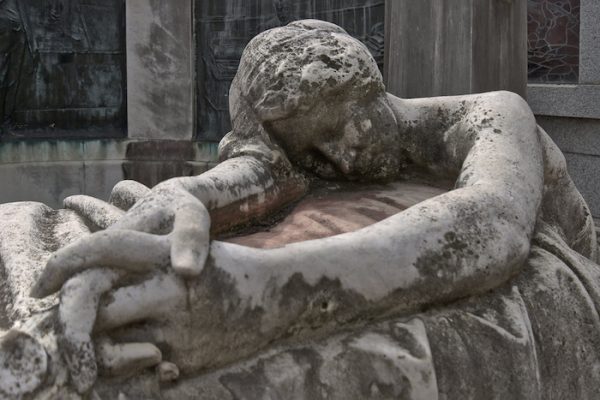Thinking of death is inherent to being human. Technological advances, like so many human activities, reflect our desire to avoid it. But that may all be bound to change.
The human being’s link to death is intrinsic and existential. It is not an external notion one could discard or disregard and somehow remain human. Death, simply put, is a part of us.
As the German philosopher Martin Heidegger observed, our death is both imminent (we could die almost immediately) and conceived in our minds as too distant (we usually think we still have a long time left to live). French philosopher Jacques Derrida asked cheekily, “Is my death possible?” when dying precisely eliminates all possibilities. The curious thing is that while we know we are born to die, we spend our lives trying to transcend death. There is a basic awkwardness or nonsensical origin to all our actions: Whatever we do, we will still die, whence our flight toward daily routines in order to forget or seek relief. This ambiguity may explain a great part of human culture. Just as we want to negate death, we also seek to surpass ourselves.
The 20th-century Spanish writer Miguel de Unamumo postulated that human anxiety was a product of the tension between reason on the one hand, which understands that life is finite, and the desire that it continue forever. That desire has become the engine behind all the attempts to supercede our limits. Thus with every technological innovation, symbolic transformation, revolution in values or new narrative on the meaning of life, are we not aspiring, ultimately, to achieve immortality?
Graveyards do not so much recall our provenance as our destination
Now death, which pertains to others, is not the same as dying, which we cannot possibly experience. Cemeteries and their rituals are a means of linking ourselves to the deaths of others, the only possible death experience. In any case, a person supposes that he too will also be buried, honored and remembered — or forgotten. Graveyards do not so much recall our provenance as our destination, prompting the sensations of uncertainty, respect and concern among us all.

Cemeteries remain of their time of course. Technology makes it possible today to live on through images and sounds, and create a presence from the experience of absence. It would be interesting to analyze the impact of death’s omnipresence, and the evolution both of mourning and the mechanics of a memory that now is live before us, always within reach.
In reality, current trends like robotics or cloning will change the roots not just of our ties with the death of others, but our own dying. The day will eventually come when we have resolved death, which can only happen when we stop dying. That of course is also when we will stop being human. And so we shall mutate again …
Complete Article HERE!
